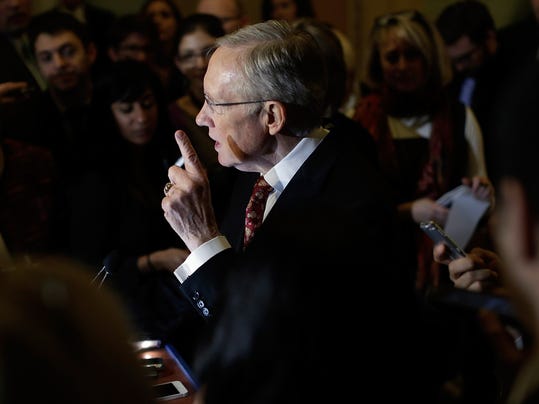 Senate Majority Leader Harry Reid, D-Nev., pushed through a controversial change to Senate rules Thursday that will make it easier to approve President Obama's nominees but threatens to further divide an already polarized Congress.
Senate Majority Leader Harry Reid, D-Nev., pushed through a controversial change to Senate rules Thursday that will make it easier to approve President Obama's nominees but threatens to further divide an already polarized Congress.
Fifty-two Senate Democrats and independents voted to weaken the power of the filibuster. The change reduces the threshold from 60 votes to 51 votes for Senate approval of executive and judicial nominees against unanimous GOP opposition. Three Democrats — Sens. Mark Pryor of Arkansas, Joe Manchin of West Virginia and Carl Levin of Michigan — opposed the change.
The rules change does not apply to Supreme Court nominees, who are still subject to a 60-vote filibuster threshold, or to legislation.
"The American people believe Congress is broken. The American people believe the Senate is broken. And I believe they are right," Reid said Thursday on the Senate floor. "The need for change is so very, very obvious."
The turning point in the decades-long debate over Senate filibuster rules was Republicans' decision to block all three of Obama's latest nominees to the U.S. Court of Appeals for the District of Columbia Circuit, the nation's second-most-powerful court with vast jurisdiction over federal agencies and regulations.
